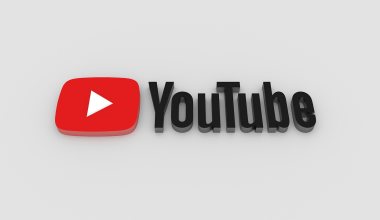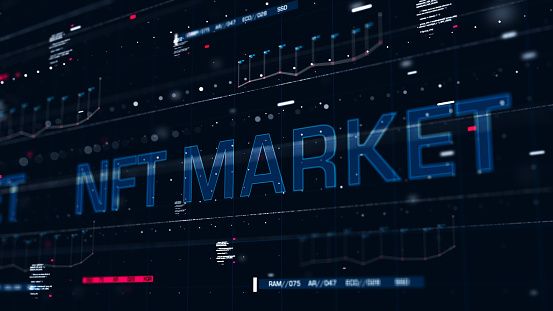If you’re an independent artist wondering how to share your song on iTunes without a distributor, you’re not alone. Many musicians prefer to handle their releases on their own terms, skipping the middlemen to retain control over their music. The good news? It’s absolutely possible to get your music on iTunes without going through a distributor. In this guide, we’ll walk you through the steps, tools, and best practices to make your dream a reality.
Why Release Music Without a Distributor?
Releasing music without a distributor can be liberating. You maintain complete ownership of your work, decide on pricing, and avoid giving away a cut of your earnings. Additionally, handling the process yourself ensures you’re aware of every detail involved, from uploading tracks to managing royalties.
Is It Possible to Upload Directly to iTunes?
Apple used to allow direct uploads via its iTunes Connect platform, but things have changed over the years. While direct uploads are now limited, there are still ways to bypass traditional distributors and share your song on iTunes independently. With careful planning and the right tools, you can release your music without relying on a third-party distributor.
Getting Started: Preparing Your Song for iTunes
Before diving into the technical steps, preparation is key. Here’s what you need to do:
1. Ensure High-Quality Audio Files
Your song needs to meet iTunes’ audio standards. Export your tracks as WAV or AIFF files at a resolution of 16-bit or higher with a sample rate of 44.1 kHz. High-quality audio ensures your music sounds professional and meets platform requirements.
2. Create Album Artwork
Design compelling album artwork that aligns with your music’s theme. Apple has specific guidelines for cover art, so make sure your image is at least 3000 x 3000 pixels and uses RGB color mode. Avoid including URLs, logos, or copyright-infringing images.
3. Choose the Right Metadata
Metadata is the information that accompanies your song, such as the title, artist name, genre, and release date. Double-check all details for accuracy, as incorrect metadata can delay or prevent your song from being accepted.
4. Secure an ISRC Code
An International Standard Recording Code (ISRC) is a unique identifier for your song. It helps track sales and royalties. You can obtain an ISRC from your local music rights organization or use online services that issue ISRC codes.
Uploading Your Song to iTunes Without a Distributor
Since Apple doesn’t allow individual artists to upload directly to iTunes anymore, you’ll need to use an alternative method. Here’s how:
Use an Independent Aggregator
Aggregators like TuneCore and CD Baby are often considered distributors, but some operate differently, offering flat-fee services without taking a cut of your royalties. Research and choose an aggregator that fits your budget and goals.
Apply for Direct Access via Apple Music for Artists
While this option isn’t open to everyone, some independent artists can request direct access to Apple Music for Artists. If approved, you’ll have more control over your music’s performance data and visibility on the platform.
Consider Using Friends or Collaborators
If you know someone with access to a distributor or aggregator account, you could collaborate with them to upload your music. Just ensure you formalize the agreement in writing to avoid disputes later.
Managing Your Song After It’s Live
Once your song is live on iTunes, the work doesn’t stop there. Here are a few things you should focus on:
Promote Your Release
Use social media, email lists, and other platforms to spread the word about your new release. Share the iTunes link and encourage fans to purchase or stream your song.
Monitor Sales and Feedback
Track your song’s sales and listen to listener feedback. Use this data to improve your future releases and marketing strategies.
Leverage Reviews and Ratings
Ask your fans to leave reviews and ratings on iTunes. Positive feedback can boost your song’s visibility on the platform.
Engage With Your Audience
Respond to comments and messages from your fans. Building a connection with your audience can lead to long-term loyalty and support.
Benefits of Sharing Your Song on iTunes Independently
Taking the independent route offers numerous advantages:
- Full Control: You oversee every aspect of your music’s release.
- Cost Savings: You avoid paying a percentage of your royalties to a distributor.
- Creative Freedom: You can release music whenever and however you want.
- Direct Connection: You build a closer relationship with your fans.
Challenges You Might Face
While sharing your song on iTunes without a distributor has its perks, it also comes with challenges:
- Technical Knowledge: You’ll need to familiarize yourself with audio formatting, metadata, and platform requirements.
- Time-Consuming: Managing the process yourself can take more time compared to using a distributor.
- Limited Access: Certain tools and promotional opportunities may only be available through traditional distributors.
Alternative Platforms to Consider
In addition to iTunes, consider releasing your music on other platforms like Bandcamp, SoundCloud, or YouTube. These platforms allow more flexibility for independent artists and can help you reach a broader audience.
Building a Long-Term Strategy
Sharing your song on iTunes without a distributor is just one step in your music career. To sustain your growth, consider these strategies:
- Release Consistently: Keep your audience engaged by releasing new music regularly.
- Expand Your Presence: Use multiple platforms to ensure your music reaches as many listeners as possible.
- Collaborate With Other Artists: Networking can open doors to new opportunities and audiences.
- Invest in Marketing: Allocate a budget for ads, social media campaigns, and PR efforts to boost your visibility.
Conclusion
If you’re determined to share your song on iTunes without a distributor, it’s absolutely doable with the right preparation and mindset. By taking control of the process, you not only save on costs but also gain invaluable experience in managing your music career. Whether you choose to use an aggregator, collaborate with friends, or explore alternative platforms, the key is to stay consistent and proactive.
For further reading, explore these related articles:
- How to Monetize Your Video on All Streaming Platforms
- Monetize Your Video on All Streaming Platforms to Get Paid
- How to Monetize Your Video on All Streaming Platforms to Get Exposure
For additional resources on music marketing and distribution, visit DMT RECORDS PRIVATE LIMITED.






